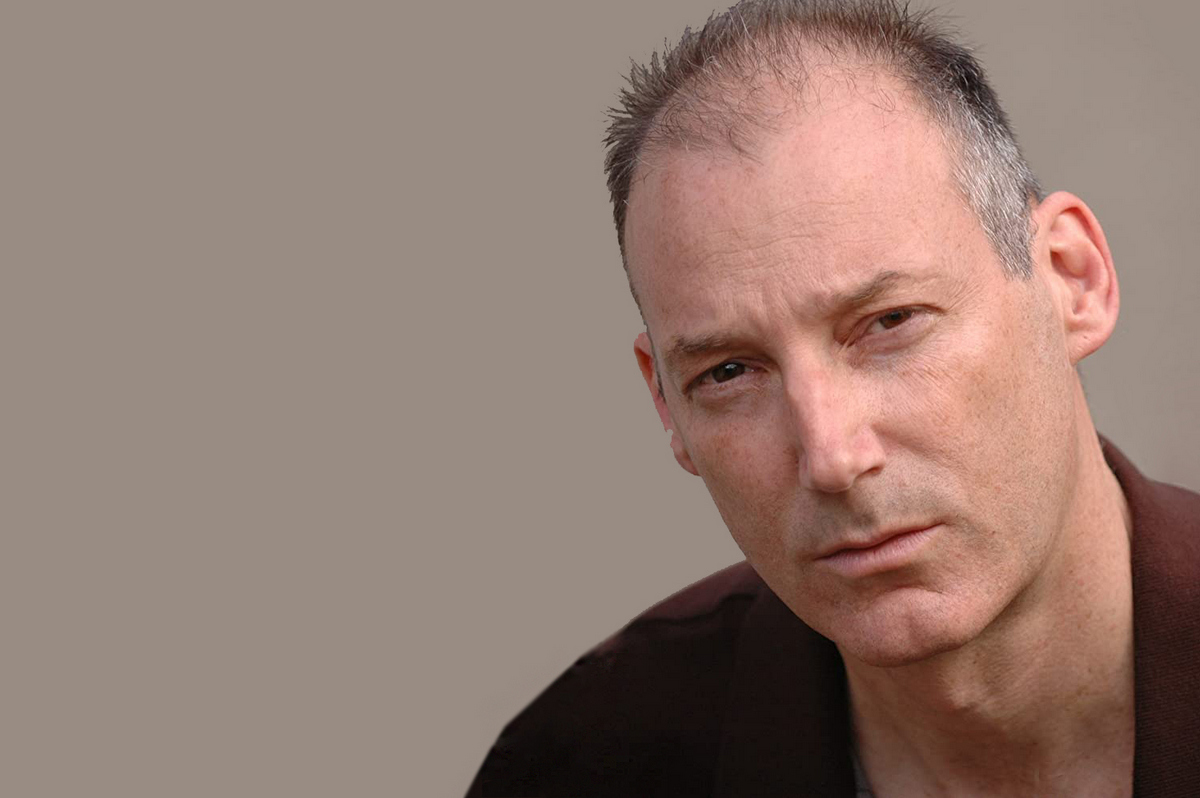
Warren Fast says “Our film, Finding Grace was born out of a desire to present a message of hope to the world in a (hopefully) compelling, entertaining and unique way. The film focuses on a rebellious girl who has just turned 18 and gets in some legal trouble. She is sentenced to community service at an assisted living facility where she assigned to an unapproachable, abrasive woman who has given up on life. We experience the sparks as their journeys intersect. The theme of the film is that there is hope in any circumstance.”
“I incorporate faith in the film as well but the story is intended to stir feelings of camaraderie with those around us and love for our fellow man. The style is very character oriented, presenting everyday people anyone can identify with. We did not do the festival circuit as the film got picked up for distribution. But we did enter the International Christian Film Festival and were honored to receive two award nominations: “Best Picture” and “Best Supporting Actress“. We are crossing our fingers for a hopeful win.”, says Warren Fast
indieactivity : Give a background of your personal experience with the story, writing, production and marketing?
Warren Fast : I am a screenwriter by trade but had a desire to produce and direct my own film. I had a story I wanted to tell and spent weeks refining the script and characters. I then went about assembling my team. With the script I was able to acquire a couple of small investors and then we financed the rest ourselves. (My wife and I) I had actors in mind for both the characters of Alaska and Conner Rose. Awesome talents Paris Warner and Jasen Wade respectively. For marketing, we shot a teaser when we had just the script and used social media to get it out there. We kept up the campaign from that point on with BTS stuff as we filmed.
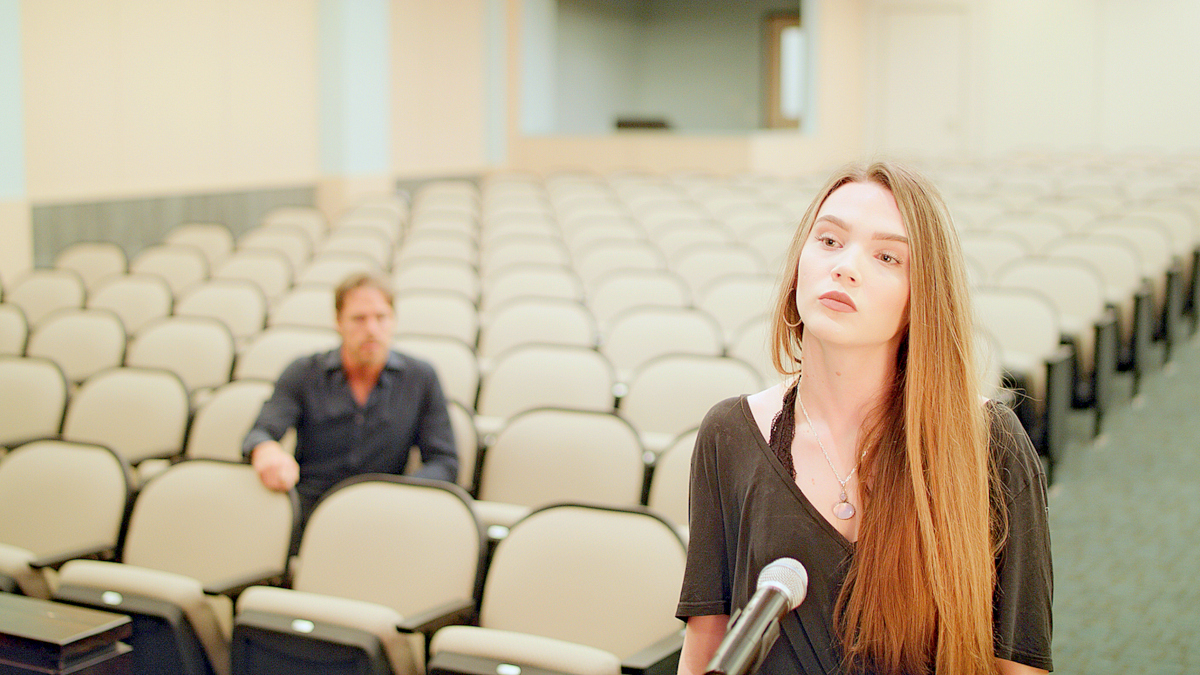
indieactivity : Did you start writing with a cast (You or any) in mind?
Warren Fast : Actually, I did initially have a thought to play the father in the story, Conner. But then decided that the film had a much better chance of being successful with established names in place for the leads and I am unknown. It would not serve project well. That’s when I looked to actor Jasen Wade (The Cokeville Miracle, Saints and Soldiers: Airborne Creed). I knew I wanted to approach some Hollywood names as well for other key roles. Again, the script was presented in all cases and they were interested, some loving their potential roles. Erin Gray, David Keith and Bo Svenson were great to work with
indieactivity : How long did you take to complete the script? (Do you have a writing process?)
Warren Fast : Once I decided upon the story, the script took 6 weeks to complete. I try to write about 10 hours/week normally because I have another very demanding full time job. I ramped up this process to get the script done because my goal was to start principle photography within two or three months from conception
indieactivity : How did you develop ‘your film’?
Warren Fast : I developed FINDING GRACE step by step in a pretty traditional indie way. I refined a story I wanted to tell in a low budget manner and set in the area in which I live. I came up with a solid schedule and budget. Once the script was complete, I set out to attach talent, secure financing, hire a crew and other behind the scenes personnel. We scouted locations, conducted auditions etc. We were blessed that all aspects of pre-production seemed to fall into place very quickly.
indieactivity : How was it financed?
Warren Fast : The film was financed through a couple of small investors, but the majority of the budget was provided by my producer wife and I. I knew it was an investment that was a risk and which depended upon distribution, but I felt we had a fair chance of securing that or we could try to self-distribute if that failed. We were very blessed when Vision Films picked it up.
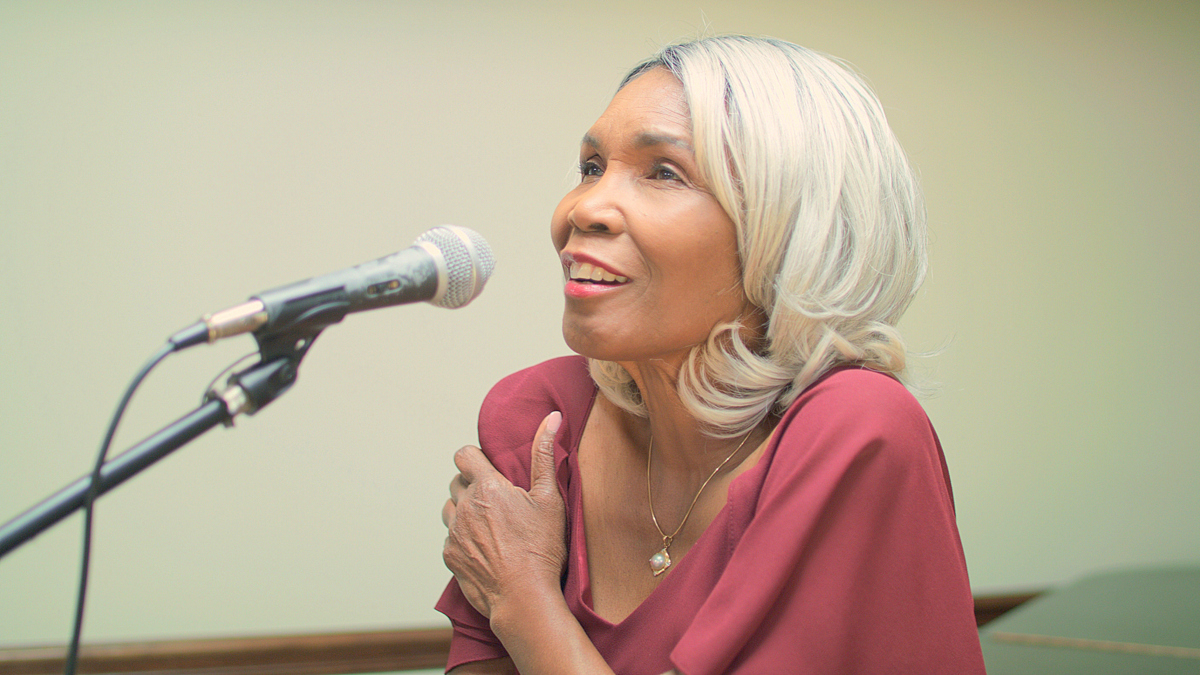
indieactivity : Is there anything about the independent filmmaking business you still struggle with?
Warren Fast : Yes, financing is always the struggle. We can’t finance another film ourselves at this point so the timeline of my next film will depend on the success of this one.
indieactivity : How long was your pre-production?
Warren Fast : Pre-production lasted about 2 months.
indieactivity : What was your rehearsal process and period?
Warren Fast : We did not have time or money for any formal rehearsals. We would run scenes the day of shooting. Some actors rehearsed on their own on breaks and in between shots. The actors were very professional and were prepared so I only needed a take or two when the camera rolled.
indieactivity : You shot the film in days. How long were your days?
Warren Fast : My schedule was a 19 day shoot, 8 hour days with a lunch. Only a couple days were scheduled at 10 hours. We fortunately never went over schedule on any day. I was blessed with a great team in front of and behind the camera.
indieactivity : Did the tight shooting schedule make it harder or easier? How did it affect performances?
Warren Fast : The schedule was at a good pace with no down time and didn’t feel tight at all. Again, the talent was very professional and their performances did not suffer as there was plenty of time for takes. Set up between shots was rapid. We went from shot to shot rather smoothly.
indieactivity : How much did you go over budget? How did you manage it?
Warren Fast : I was only able to get in place about half of what the film was budgeted at. But I adapted the story to this new budget and stayed within it well. Not budgeting any personal salary or fee for writing, producing, directing or acting really helped. All funds went to other talent and crew and actual production costs. Also, filming in our home town contributed to our savings as well
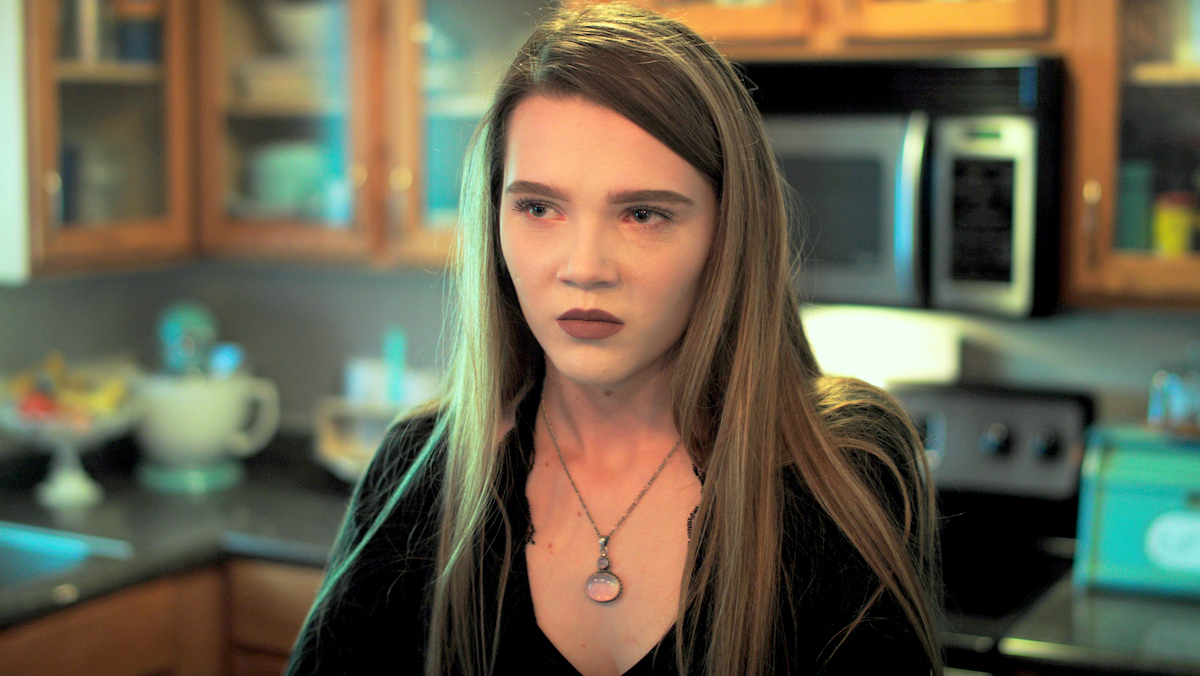
indieactivity : How important is marketing? Do you think a project can make any dent without it these days?
Warren Fast : I believe marketing an indie film is very important and a big part of the process. I love to read about the early days of indie films and all the creative ways filmmakers back in the day worked to get their film out there. We used social media and word of mouth to promote. When the film was picked up for distribution, they hired a PR firm which has been awesome.
indieactivity : What was the experience like of working with such a small shooting crew (?)?
Warren Fast : Yes, I had the smallest of the film crews. But I have not known anything different. To me it was efficient to have a small crew. My Director of Photography, Lucas Bessey, was great and kept his team moving. The small crew was not a hindrance on the film.
indieactivity : The film looks stunning. How did you get such a good look when shooting so fast?
Warren Fast : You are very kind and I certainly appreciate the compliment. We did have limitations on lighting packages and certain camera equipment. But I think we made good use out of what we had. My DP responded well to my vision and had great ideas of his own. It was the first time for both of us. We each learned as we went and improved each day. But really, the 19 day shoot seemed quite enough time for the script. I even cut 20 minutes out of the film because it was way too long after the first edit.
indieactivity : Did you look at rushes? On what format?
Warren Fast : Yes, I got to look at rushes of the raw footage daily and listen to the sound. I didn’t have a monitor screen on set so I had to watch playback on the camera itself. That was frustrating. The rushes helped refine things along the way and let me know what needed to be re-shot. Unfortunately, a CAT 5 hurricane destroyed our home town after principal photography so we could not do any pickups. But we did do some ADR.
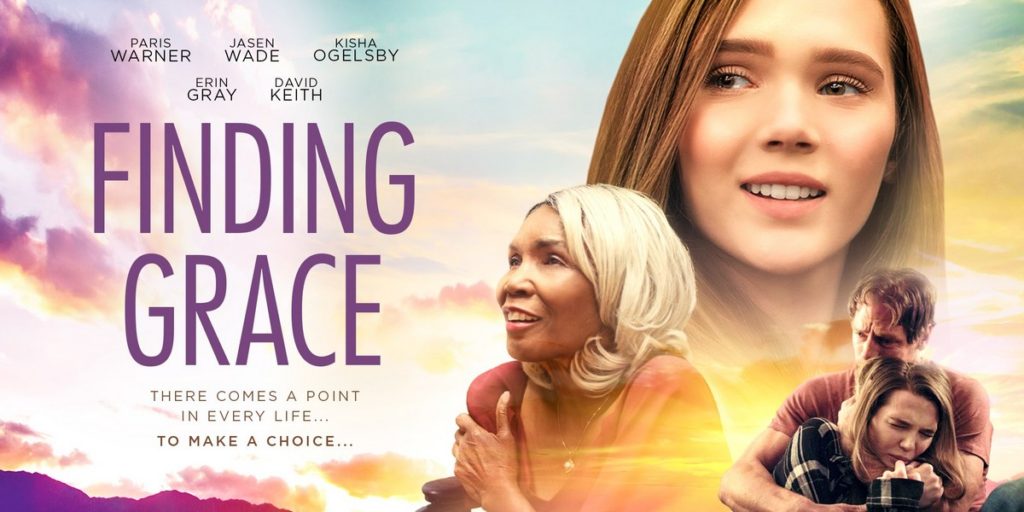
indieactivity : What were the advantages and disadvantages in the way you worked?
Warren Fast : The main disadvantage to the whole process was lack of funding. That, in turn, severely limited resources and some goals I had with telling the story. There were many advantages though like excellent performers, a great film commissioner Julie Gordon who helped a lot with the local community. Also a talented enthusiastic crew and people involved who loved the story. One of our actors, London Grace, liked the project so much she came on board to assist with post production and addition funding, becoming a producer in that area of the film. Spirits were great on set and we had a lot of fun. I would say there were more advantages than disadvantages.
indieactivity : What else have you got in the works?
Warren Fast : We have a small slate of projects in various stages of development. I’ have marketable scripts in different genres. A holiday romantic dramedy, a sci-fi adventure, and faith based period film. We are hoping that if there is any profit on Finding Grace that we can begin to fund the next film. My goal is to produce one feature a year.
Tell us what you think of the interview with “Warren Fast” What do you think of it? What ideas did you get? Do you have any suggestions? Or did it help you? Lets have your comments below and/or on Facebook or Instagram! Or join me on Twitter @oladapobamidele
Where We Stay by Florence Bouvy to Screen at CIFF
Where We Stay | CIFF Selected Drama About Friends Hiding Unspoken Truths
This Place by V.T. Nayani: Two Women in Love for the First Time on VOD & DVD March 25
Freestyle Acquires “This Place” for March Release
Sonoma International Film Festival Wraps with Unforgettable Films, Culinary Cinema and Packed Pop-In Events
Sonoma International Film Festival Grand Jury and Audience Award Films Announced
Livestreams with Grandmapuzzles by Emily Sheskin to Screen at CIFF
CIFF Selected Documentary About Twitch Streaming Jigsaw Puzzler
VisionRey Snags Acceptance for 2 Films at FilmApalooza
VisionRey is a Mexican-American Female-Led Film Company
Pomegranate by Weam Namou: on VOD Platforms and DVD on March 4
Freestyle Acquires Dramedy “Pomegranate” for March Release
Into The Spotlight by Thaddeus D. Matula: on VOD and DVD February 21
Freestyle Acquires Doc “Into the Spotlight”









